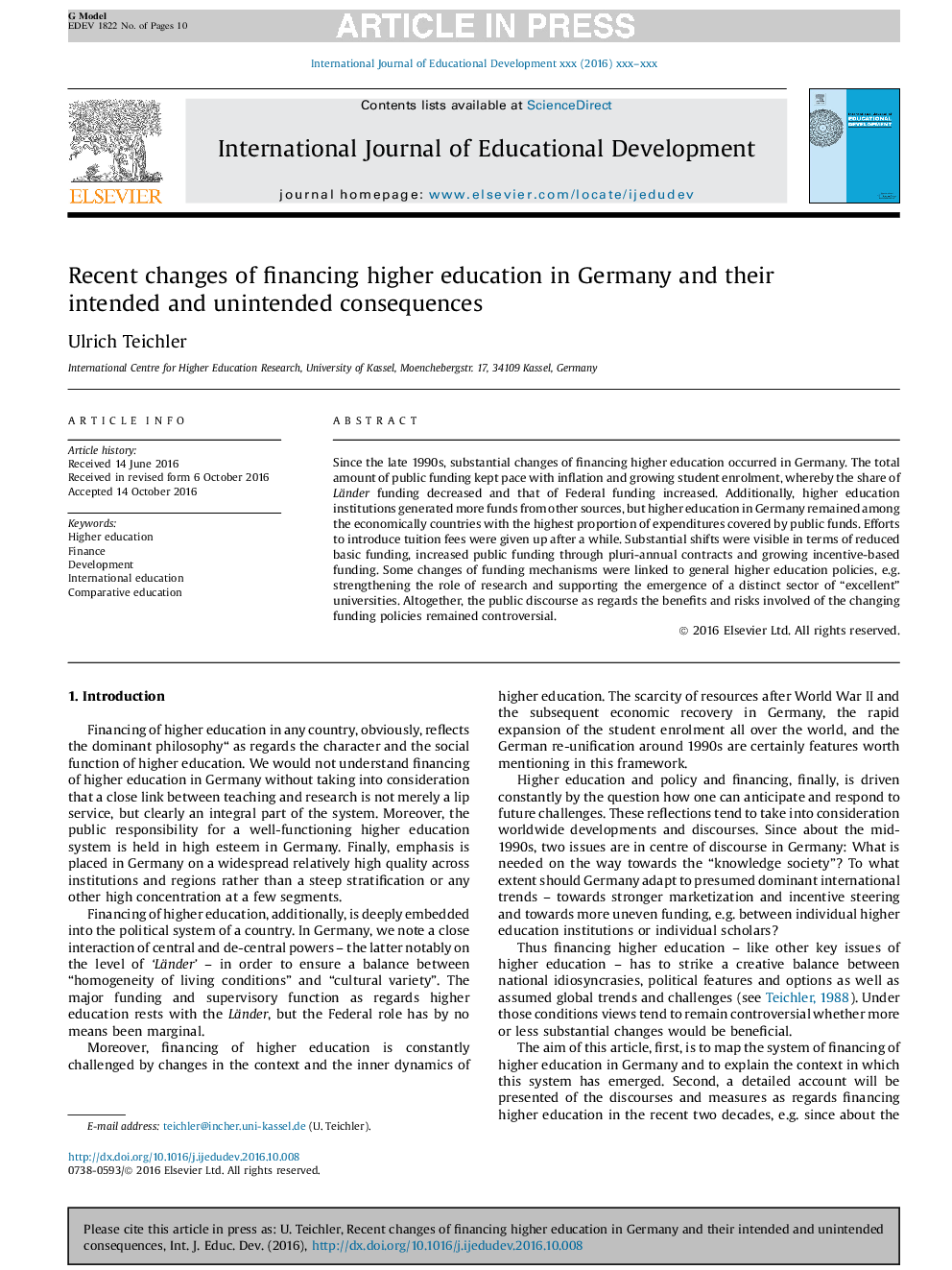| Article ID | Journal | Published Year | Pages | File Type |
|---|---|---|---|---|
| 6841154 | International Journal of Educational Development | 2018 | 10 Pages |
Abstract
Since the late 1990s, substantial changes of financing higher education occurred in Germany. The total amount of public funding kept pace with inflation and growing student enrolment, whereby the share of Länder funding decreased and that of Federal funding increased. Additionally, higher education institutions generated more funds from other sources, but higher education in Germany remained among the economically countries with the highest proportion of expenditures covered by public funds. Efforts to introduce tuition fees were given up after a while. Substantial shifts were visible in terms of reduced basic funding, increased public funding through pluri-annual contracts and growing incentive-based funding. Some changes of funding mechanisms were linked to general higher education policies, e.g. strengthening the role of research and supporting the emergence of a distinct sector of “excellent” universities. Altogether, the public discourse as regards the benefits and risks involved of the changing funding policies remained controversial.
Related Topics
Social Sciences and Humanities
Social Sciences
Development
Authors
Ulrich Teichler,
